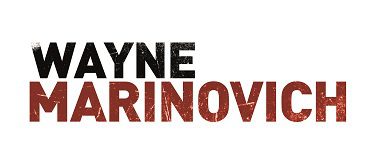
Lessons Learnt
In 2008, I sat down to write with the view of turning writing into an alternative career to the one I’d been stuck in for years. Sound familiar to anyone? I quickly realised that to make it as a full-time writer, I would need to produce a steady stream of novels that people would buy and want to read. I was both excited and daunted by the challenge of coming up with fresh content that readers enjoy.
Fast forward to the present, and I can say that it has been one of the greatest journeys of my life thus far. As I look back, it’s difficult to quantify how much I’ve learnt. Here’s a list of the main points you need to look at before embarking on this epic journey.
- What genre/audience are you writing for?
- Self-publish or traditional publishing
- Study your craft
- Write thorough character biographies / CV’s.
- If you are writing a series, start with the first book.
- Get your cover designed professionally
- Hire an editor
- Get your work proofread
- Keep Writing
- Lower your expectation.
What genre/audience are you writing for?
I know this seems pretty obvious, but you need to know who your target audience is, so you know where to find them. I guarantee you that not everyone is going to like the genre you write in, so it makes no sense trying to sell erotic romance novels to action-adventure junkies. Knowing your audience will also help when you’re listing the books with online retailers because these tend to have different categories in their bookstores.
Self-publish or be published.
Do some research online to decide whether you want to be published or want to self-publish. I made a simple list of the pros and cons of self-publishing and then decided. Don’t waft between the two. Some bloggers and writers will say that the writing is more important, and I can’t argue with that, but if you do decide to self-publish, there are many things you can do while you are busy writing to facilitate that you hit the market running.
Study your craft.
Read books about writing. This is a key lesson that you need to get to grips with, As many as you can get your hands on. I found it vital to read books about the craft of writing because there is a difference between telling a story and writing a novel. English may be your first language, and you may have done well at it at school, but you still need to learn things like structure, plot and characterisation to publish a good read. I started with Stephen King’s, – On Writing and Jack M. Bickham’s – The 38 Most Common Fiction Writing Mistakes and continue to learn every time I re-read them. Writing is, after all, a passion that takes time and effort to perfect.
Write thorough character biographies / CV’s.
Get to know your main characters intimately. Knowing them will help you to move between them quickly and seamlessly while you write. It is important to feel the character, so you don’t have them say or do something that the reader finds ‘out of character’. They will pick up on this pretty quickly.
I’m working on two series at the moment, and many of my main and secondary characters are present throughout so I need to maintain the continuity (or growth) of each character.
If you are writing a trilogy or series, start with the first book.
Don’t write the second novel in a trilogy first! This is a mistake that I made. Only George Lucas can get away with stuff like that. You might end up with two completed manuscripts as I did, but I can guarantee you, plots will change in the first novel which will mean major rewrites in the second.
Get your cover designed professionally.
Find a designer who designs covers for a living and more specifically, someone who has designed covers in the genre you are writing. Not all designers can design the cover you need. Invest heavily here because it is what people will see first and it can help hook them into your work. If the designer already works in the publishing industry, even better.
Note: If you are printing paperbacks you’ll also need the book spine and back cover design.
Hire an editor.
Once you think you have a complete manuscript, look for a freelance editor to give the manuscript a proper work over. Do your research and find someone who has experience in editing and isn’t a failed author who is looking for another way to pay the bills. Pay good money here. Most of the writing lessons I’ve learnt to date have come through applying or questioning their edits.
Get it proofread.
Find qualified people to proofread your manuscripts. And no, your mom or best friend are not the people for this job. Give them a free published copy afterwards – they will still love it. You need a professional who does it on a regular basis. Someone who can be objective and tell you what you need to hear.
In other words, get yourself a professional tea. HERE is a post about who I use, including all their details. I highly recommend all of them.
Keep Writing.
Well, this is obvious, isn’t it?
Get your backside into the chair, and work on the next project. I firmly believe there must always be the “next” project. You are a writer so get on with writing. I dovetail my projects, and that allows me to keep the work fresh in my mind. CLICK HERE to read about how I do it.
Lower your expectation.
Don’t expect anything other than a few friends and family to buy your books. I know that’s not what you want to hear as you start out, it’s just the truth. A low expectation should be the starting point for all the books you publish. Don’t sit there dreaming of an instant bestseller because it doesn’t work like that. There’s no guarantee you’ll make it as a writer just because you slaved over a novel.
Do all the things I suggest above, and you’ll increase your chances of making a success of your writing. Very few people have hit it big with their first novel, in their first year. Most have spent eight to ten years working hard for their breakthrough moment. See it as the apprenticeship that you must serve.
But above all, enjoy the journey
Do all the things I suggest above, and you’ll increase your chances of making a success of your writing. Very few people have hit it big with their first novel, in their first year. Most have spent eight to ten years working hard for their breakthrough moment.
To receive more writing tips, book recommendations and news of future releases, subscribe to the newsletter











